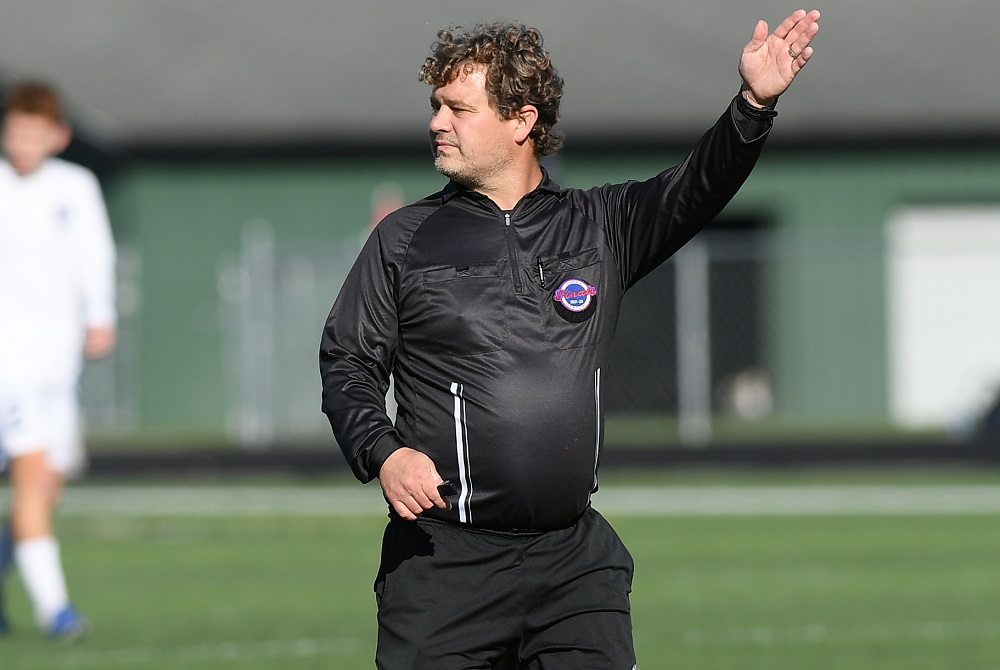
Be the Referee: Returning Kickoffs
September 22, 2016
Every football game starts with a kickoff, and our "You Make The Call" series will start with the same play for 2016.
Be The Referee is a series of short messages designed to help educate people on the rules of different sports, to help them better understand the art of officiating, and to recruit officials.
Below is this week's segment – You Make the Call: Returning Kickoffs - Listen
Every football game starts with a kickoff, and our 'You Make The Call' series will start with the same play for 2016.
The kicker kicks the ball high and deep off the tee, and the return man – three yards deep in his own end zone – catches the kick in the air, and now starts to head upfield to try and gain yards. Under high school rules, is the legal?
Believe it or not, the answer is no. Under high school rules, whether it’s a kickoff or a punt, once the ball breaks the plane of the goal line, the ball is dead and it becomes a touchback, with the offense taking over, first and 10, on the 20-yard line.
College and professional players can return kicks from the end zone; high school players cannot.
Past editions
Sept. 15: Concussions - Listen
Sept 8: Equipment Covering the Knees - Listen
Sept. 1: Play Clock Experiment - Listen
Aug. 25: Clipping in the Free Blocking Zone - Listen

Be the Referee: Soccer Timing
By
Sam Davis
MHSAA Director of Officials
September 20, 2022
Be The Referee is a series of short messages designed to help educate people on the rules of different sports, to help them better understand the art of officiating, and to recruit officials.
Below is this week's segment – Soccer Timing - Listen
One of the biggest complaints people make about professional soccer is never knowing how much time is really left in the game. The clock counts up from zero, and the referee can add time at their discretion.
But that’s not the case in high school soccer.
To start with, halves are 40 minutes, not 45. The clock starts at 40 and counts down. And when players are injured and the ball is not in play, the clock will stop and then restart when action is ready to continue.
In the last five minutes of the game, the clock stops for substitutions by the leading team, so a coach can’t stall by sending in a new player. When the clock hits zero and the buzzer sounds … the game is over. There’s no guessing how much added time there is – the end of the game is the end of the game.
Previous Editions:
Sept. 13: Volleyball Replays - Listen
Sept. 6: Switching Sides - Listen
Aug. 30: Play Clock - Listen
Aug. 23: Intentional Grounding Change - Listen

